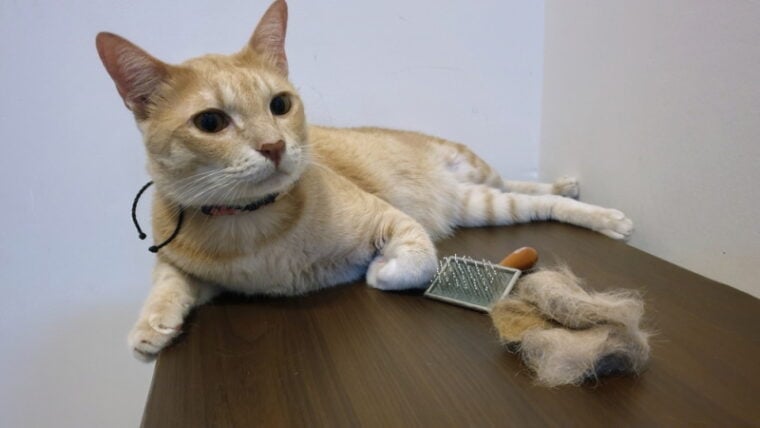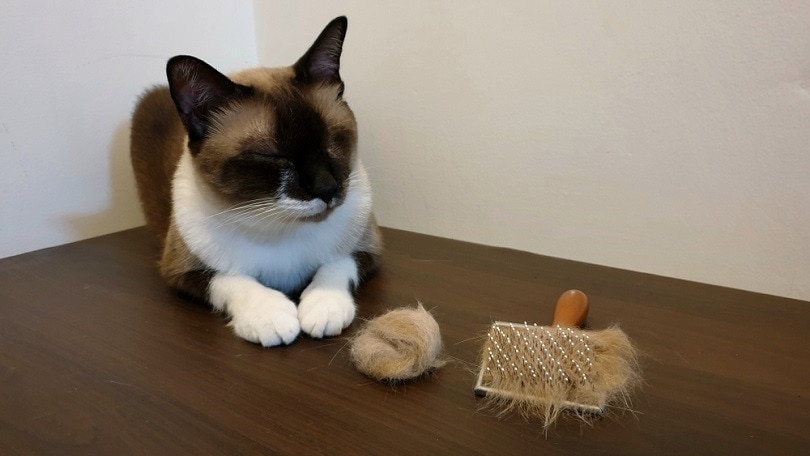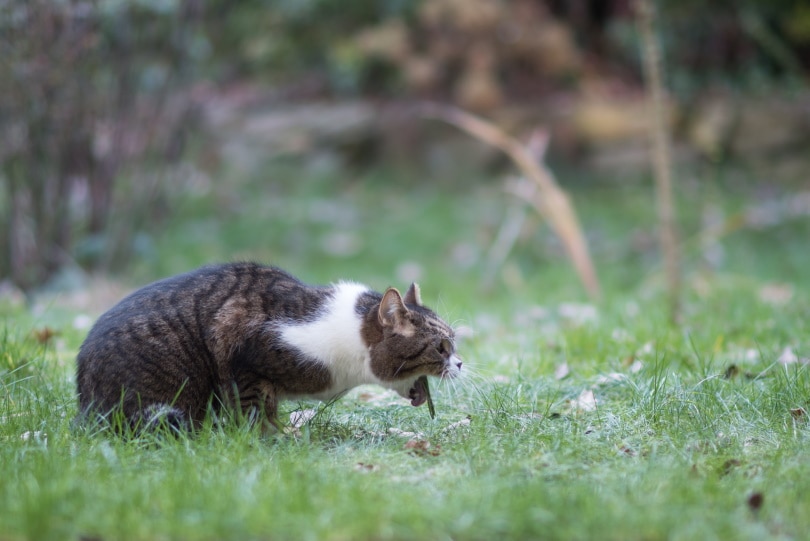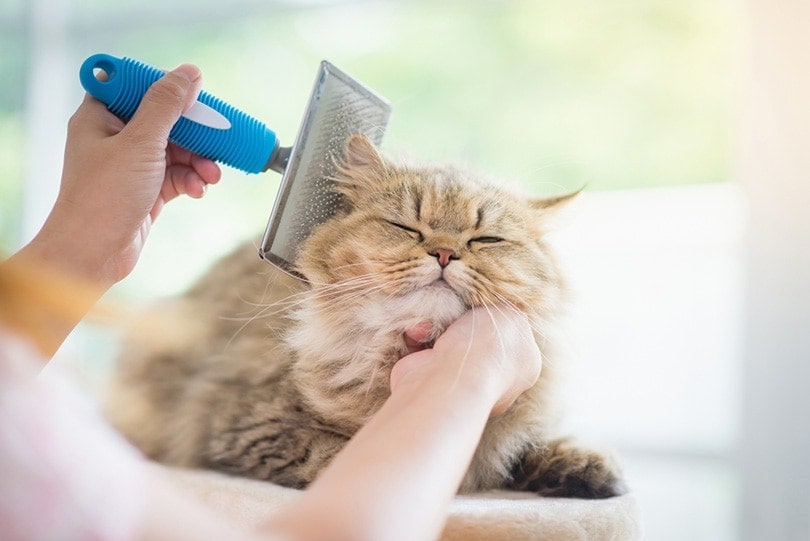
Click to Skip Ahead
Hairballs are tube-like masses of fur that your feline friend may cough up from time to time. But don’t be alarmed if your cat vomits up small pieces of fur occasionally — it is normal and not usually a cause of concern. That said, the Cornell Feline Health Center states that “a large clump of ingested hair can block a cat’s intestinal tract and pose a deadly threat.”1
A matted wad of hair can endanger your cat’s health if it grows too large to pass from the stomach to the intestine. A hairball that gets stuck in the small intestine can also pose a life-threatening risk, as it can lead to intestinal blockage and require emergency surgery.
In this article, we explain what you need to know about hairballs in cats, when you should be concerned, and how you can help prevent them.
What Are Hairballs in Cats?
The fancy term for a hairball is a trichobezoar, which is basically a damp wad of undigested hair, moistened by bile and other digestive fluids.
Cats clean themselves by licking their fur, but excessive licking can cause hairballs. Cats will ingest a large amount of hair that is either regurgitated naturally once every week or two or gets stuck in the gastrointestinal tract. In some cases, hairballs can also get stuck in the esophagus, leading to possible asphyxiation.
Hairballs can be seen in all cats, regardless of age or breed. However, cats with thick and long coats, such as Persians and Himalayans, are more prone to this health problem. Kittens are less likely to get hairballs because they are less efficient at grooming than adults.

The Dangers of Hairballs in Cats
Hairballs can lead to health and behavioral problems, including:
When You Should Be Concerned About Hairballs
A regurgitated hairball once every week or two should not be problematic. However, watch out for the following signs, as they could indicate that a hairball is stuck somewhere in the digestive tract, posing a serious threat to your pet.
Consult your veterinarian right away if you notice one or more of these signs:

How to Prevent Hairballs in Cats
If your cat is prone to hairballs, there are a few things that you can do to help prevent the excessive build-up of hair in their system:

Final Thoughts
An occasional hairball is normal and not a cause for concern. It’s simply the result of hair accumulating in your cat’s stomach due to meticulous grooming. All breeds can get hairballs, although some long-haired breeds are more prone to ingesting excessive amounts of hair while grooming.
However, hairballs can become a serious health risk if they occur too often or get stuck in the cat’s digestive tract. All cat parents should monitor the behavior of their feline friend and be on the lookout for symptoms indicating that a hairball is obstructing their esophagus, stomach, or small intestine.
Featured Image Credit: RJ22, Shutterstock






